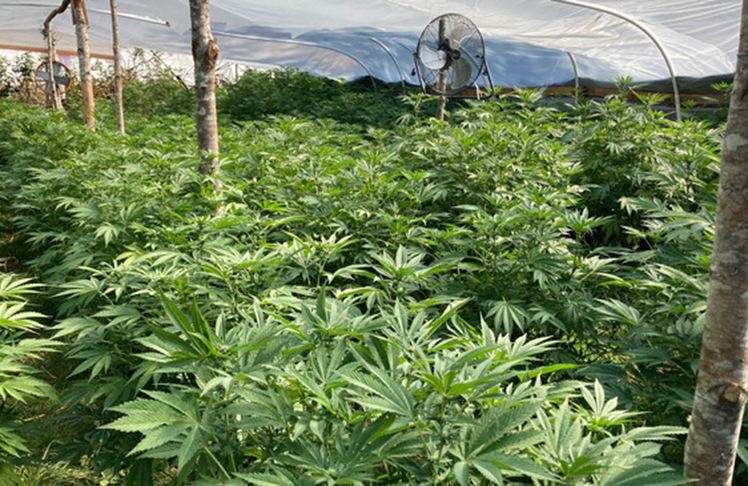
States that have passed law making pot legal still have to deal with illegal weed. “The illicit industry is generating billions of dollars in profits and is financed by well-heeled foreign criminal gangs and drug cartels,” law enforcement officials said.
Jackson County Sheriff Nathan Sickler told lawmakers the cartels “have a business model: Put up more cannabis illegal grows than law enforcement can ever get. They know we’re going to get some, but they know we can’t get it all.” Oregon is growing tired of illegal cannabis farms, cracking down on factories everywhere. The farmers are blaming landowners for selling or leasing property to bad actors.
“If somebody walks onto your property with a suitcase with $100,000 in $20 bills, you kind of know they’re not on the up and up. And if you take that money and allow them to do something on your land, you should probably anticipate that they’re there to break the law,” he said.
Sen. Jeff Golden, a Democrat from the southern town of Ashland, said some rural areas are “military-weapons zones, like the ones we usually associate with failed states.” “Illegal cannabis operations in southern Oregon have been using our limited water supply, abusing local workers, threatening neighbors and negatively impacting businesses run by legal marijuana growers,” said Golden, who pushed to get the measure and related funding on the agenda for the one-day special session.
The bill passed by the Legislature Monday and signed by the governor on Tuesday establishes the “Illegal Marijuana Market Enforcement Grant Program” to assist cities and counties with costs incurred by local law enforcement in addressing illegal pot farms. It will be administered by the Oregon Criminal Justice Commission. “It will help,” said Josephine County Sheriff Dave Daniel. “But the issue is metastasizing statewide. “Sheriff’s offices and other law enforcement that apply for the grants will have to work with community-based organizations to deal with the labor trafficking, said Morgan, the lawmaker. Of the $25 million, $5 million is dedicated to enforcing water rights.Several bills coming in the 2022 legislative session will address further needs, she said.















